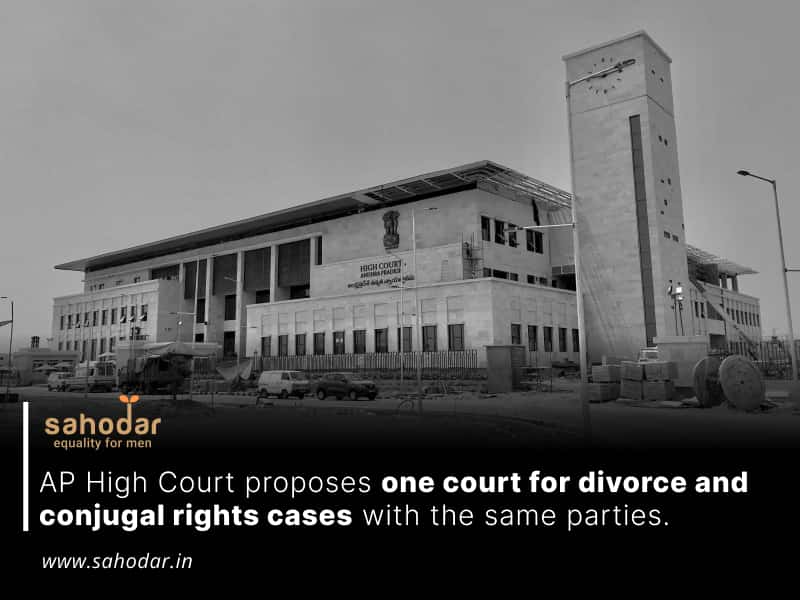The Andhra Pradesh High Court has granted approval for the transfer of a divorce case initiated by the husband from the jurisdiction of one district court to another district court. This transfer request was made in light of a separate petition concerning the restitution of conjugal rights between the same parties, with the objective of averting potential conflicting judicial determinations.
The petitioner-wife, invoking Section 24 of the Civil Procedure Code, sought the relocation of the husband’s divorce case, originally filed in the Senior Civil Judge Court of Razole in East Godavari District, to the jurisdiction of the court in Tadepalligudem, West Godavari District. Her basis for this request is her current residence at her parents’ domicile in Tadepalligudem, a location that is situated at a distance of 75 kilometers from Razole town.
Additionally, the petitioner-wife has brought to the court’s attention that she has filed a complaint against her husband and his family members, alleging offenses under Section 498A of the Indian Penal Code and Sections 3 and 4 of the Dowry Prohibition Act, within her native locale at Tadepalligudem Town Police Station. Furthermore, she has initiated a petition for the restitution of conjugal rights before the Senior Civil Judge Court in Tadepalligudem.
The matrimonial union between the petitioner-wife and the respondent-husband was solemnized on April 12, 2017, within a function hall located in Tadepalligudem. Subsequently, marital discord led the husband to file a divorce petition, invoking the grounds of cruelty as per Section 13(1)(ia) of the Hindu Marriage Act, before the court in Razole. In response, the wife submitted a petition for the restitution of conjugal rights, in accordance with Section 9 of the Hindu Marriage Act, to the court in Tadepalligudem. Simultaneously, she initiated legal action by filing a First Information Report (FIR) against her husband and his family members, alleging dowry harassment.
Justice Bandaru Syamsunder observed that when the husband filed petition seeking for divorce and the wife filed petition for restitution of conjugal rights both the petitions have to be disposed of by the same court to avoid conflicting decisions as per the ratio laid down by the Hon’ble Apex Court in NCV Aishwarya v. AS Saravana Karthik (2022): “when two or more proceedings are pending in different Courts between the same parties which raise common question of fact and law, and when the decisions in the cases are interdependent, it is desirable that they should be tried together by the same Judge so as to avoid multiplicity in trial of the same issues and conflict of decisions”.
In the current scenario, the husband’s failure to contest the wife’s allegations, demonstrated by his absence of a counter affidavit, played a significant role. Furthermore, it is customary to give precedence to the convenience of the wife in matrimonial proceedings. As a result, the Transfer Civil Miscellaneous Petition found favor with the court and was approved.

